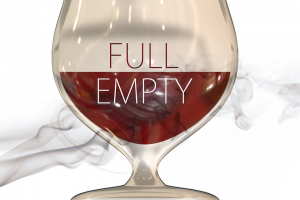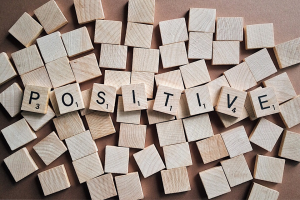Expect The Worst? It Doesn’t Mean You Are Pathological
-Is the glass better half full?-
August 20, 2017 Written by: W.B. “Bud” Kirchner
“The optimist proclaims that we live in the best of all possible worlds; and the pessimist fears this is true.” – James Branch Cabell
 I believe most people in business would say – if asked – they would like to be part of a team that has a ‘can do’ (optimistic) attitude. Presumably, they recruit and mentor with this in mind.
I believe most people in business would say – if asked – they would like to be part of a team that has a ‘can do’ (optimistic) attitude. Presumably, they recruit and mentor with this in mind.
Joshua Wolf Shenk in his book Lincoln’s Melancholy and Gail Saltz M.D. the author of The Power of Different give us a few examples of individuals with pessimistic points of view that seem to have made a difference.
- “Lincoln’s tendency to expect the worst outcome that enabled him to guide the country through the Civil War.”
- “Winston Churchill who all his life contended with what he calls the “black dog” of depression and who saw the Nazi threat far more clearly than many of his more optimistic contemporaries.”
- “Marie Curie, who suffered from depression all her life, not only threw herself into her work as a way of escaping her sadness, she also ferreted out strands of scientific study that other scientists had dismissed as fruitless.”
 “I like pessimists. They’re always the ones who bring life jackets for the boat.” – Lisa Kleypas
“I like pessimists. They’re always the ones who bring life jackets for the boat.” – Lisa Kleypas
Famous author Andres Solomon as cited by Saltz adds to the picture:
- “Low to moderate forms of depression, particularly when accompanied by above-average IQ, are associated with gifts of empathy, insight, and even creativity.”
- As an example: “Depression alone doesn’t make Solomon a writer; his depression is accompanied by exceptional intellectual gifts and the ability to use his depression productively.”
Just by way of clarification: I am largely using pessimism and depression interchangeably. This is based on an (over) simplification of the gradient from one to the other. Clearly, severe depression involves additional challenges and complications.
I provide still another perspective by quoting Adam Grant’s (The Positive Power of Negative Thinking) description of Seligman’s (Learned Optimism) summary.
As a counterbalance in Learned Optimism, psychologist Martin Seligman reveals that “when things go wrong, pessimists view negative events as personal (I’m a terrible public speaker), permanent (I’m never going to get better), and pervasive (I’m going to lose the respect of my colleagues and my spouse). Optimists, by contrast, recognize that when a presentation misses the mark, it’s possible that the audience wasn’t ready for their message, they can practice and improve, and they can still excel at other tasks and have an enjoyable evening at home.”
Another Seligman observation, of perhaps, even more concern is that “the more pessimistic your explanatory style is the more likely you end up in learned helplessness.”
“My Pessimism extends to the point of even suspecting the sincerity of other pessimists.” – Jean Rostand
In fact, some will agree that being a pessimist goes so far as to have distinct advantages. For example: Vinay Devnath writing at Storypick came up with this list.
10 Awesome Advantages Of Being A Pessimist In Life
- Nothing shocks the pessimists. NOTHING. Reading about bombings and brutal rape is just a casual news day.
- People and situations do not disappoint you. You were ready for it, you visualized it.
- Pessimists actually live longer
- You do get pleasantly surprised and happy when people do good deeds. It makes you appreciate the little moments of happiness in life.
- Pessimists also have better relationships
- You are level-headed in most scenarios, and not bubbling with excitement like those optimists.
- You remain cautious about the future, guarding yourself against the perceived risks.
- Pessimists are less bothered by stress that is basically a killer.
- People cannot take your case, or burn you. You don’t really get affected
- Pessimists know when to give up and not spend a decade with a task they cannot achieve
And one further comment regarding self-actualization:
“In a study published in the Journal of Behavioral Therapy and Experimental Psychiatry, researchers found that individuals with milder depression and dysphoria were actually more accurate in assessing their abilities than were those without depression.” (The Power of Different – Gail Saltz M.D.)
 For those who like to get into the weeds you could read (The Benefits of Pessimism – Thorin Klosowski) and learn there are at least six versions of optimism/pessimism. Unfortunately, this is not calibrated against how full (empty) you think the glass is so I am not sure how useful it is in terms of management. Again, I am not doing a clinical review of depression but rather reflecting on a ‘pessimistic’ (to various degrees) approach.
For those who like to get into the weeds you could read (The Benefits of Pessimism – Thorin Klosowski) and learn there are at least six versions of optimism/pessimism. Unfortunately, this is not calibrated against how full (empty) you think the glass is so I am not sure how useful it is in terms of management. Again, I am not doing a clinical review of depression but rather reflecting on a ‘pessimistic’ (to various degrees) approach.
We (Kirchner Group) have an internal guideline when we think we are too focused downward: We remind ourselves of the first rule of holes – when you are in one – stop digging!
The bottom line from a management point of view is – arguably your success is not pre-determined by your being an optimist or pessimist. Also – it suggests that a management team that has individuals from both camps may be a good idea.
Diversification now that seems like a good idea in more than this context!!
Bibliography
- Vinay Devnath – 10 Awesome Advantages Of Being A Pessimist In Life from Storypick
- Adam Grant – The Positive Power of Negative Thinking
- Thorin Klosowski – The Benefits of Pessimism
- Gail Saltz M.D. – The Power of Different: The Link Between Disorder and Genius
Other sources
- Martin Seligman – Learned Optimism
About the Author: W.B. “Bud” Kirchner is a serial entrepreneur and philanthropist with more than 50 years of business success. He is not a scientist or an academic but he does have a diversified exposure to neuroscience, psychology and related cognitive sciences. Generally speaking, the ideas he expresses here are business-angled expansions of other people’s ideas, so when possible, he will link to the original reference.
